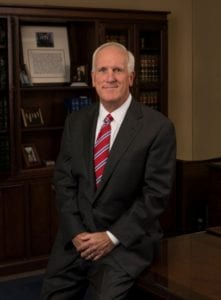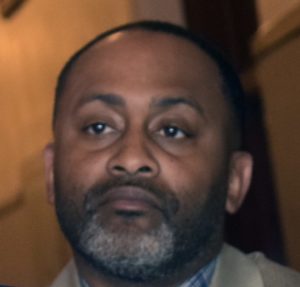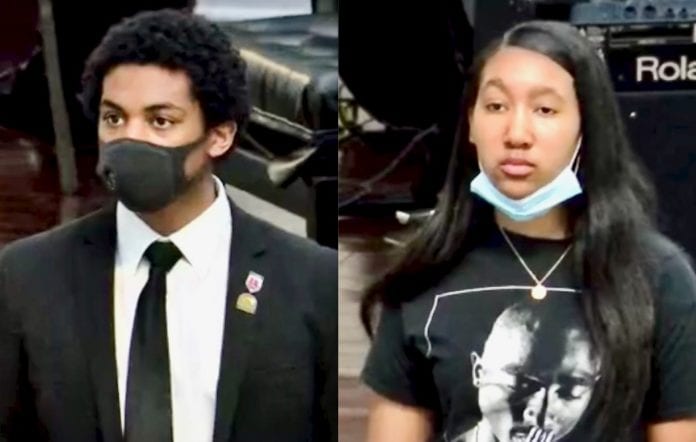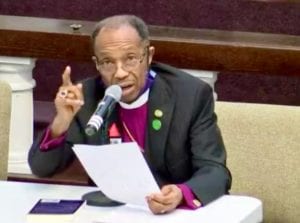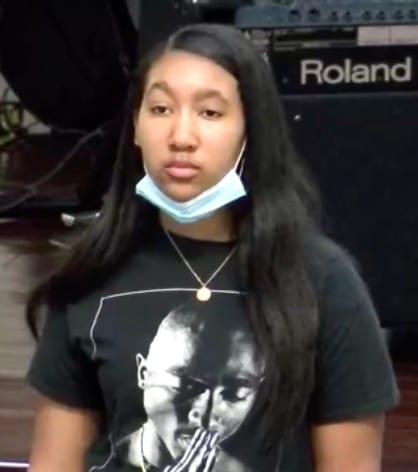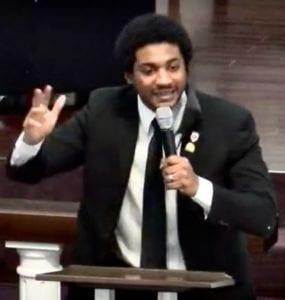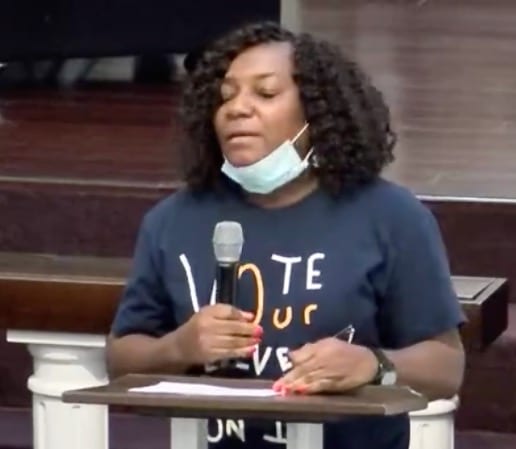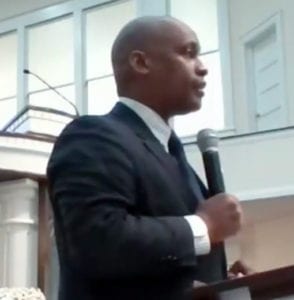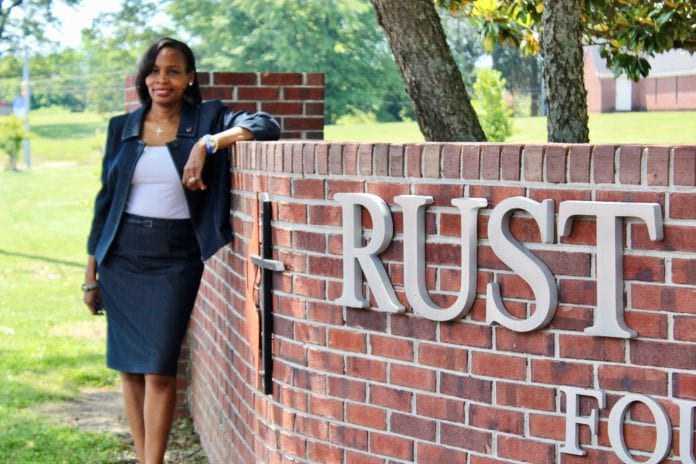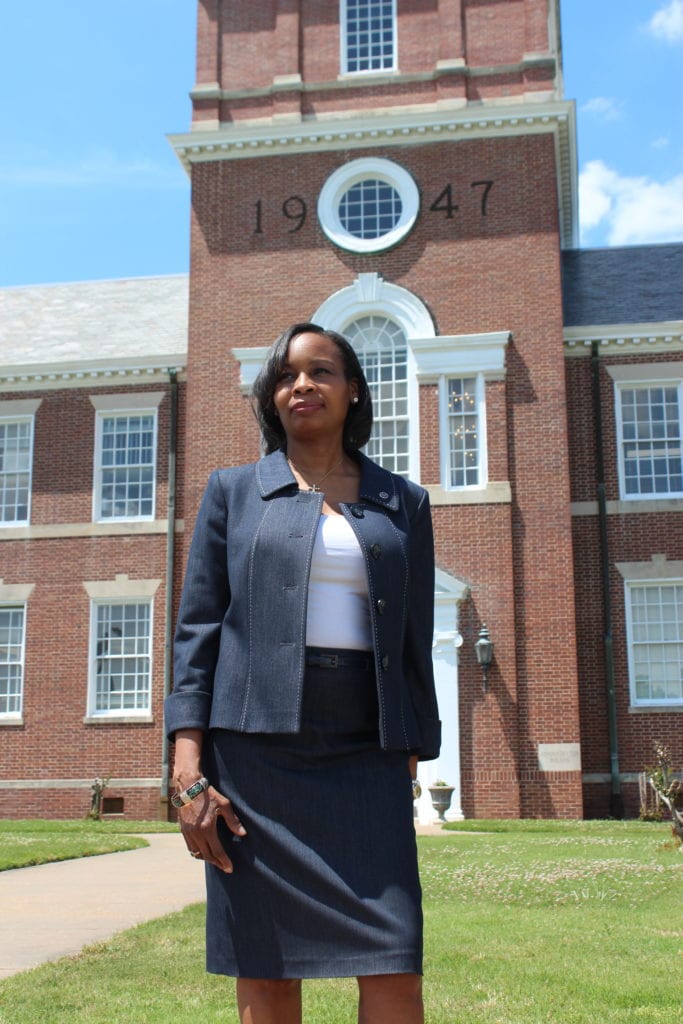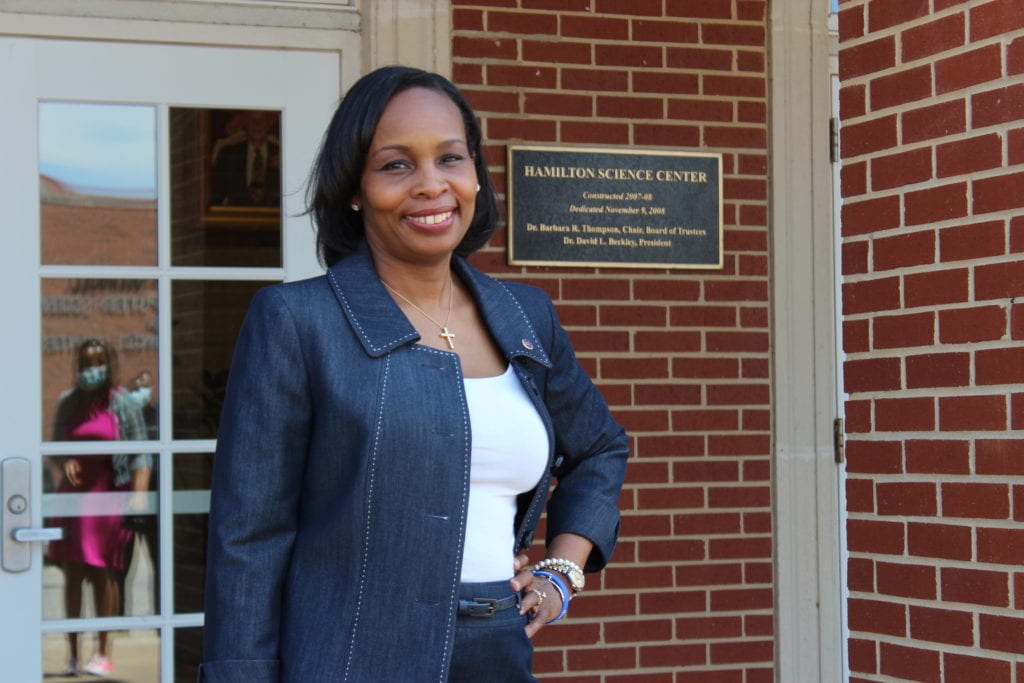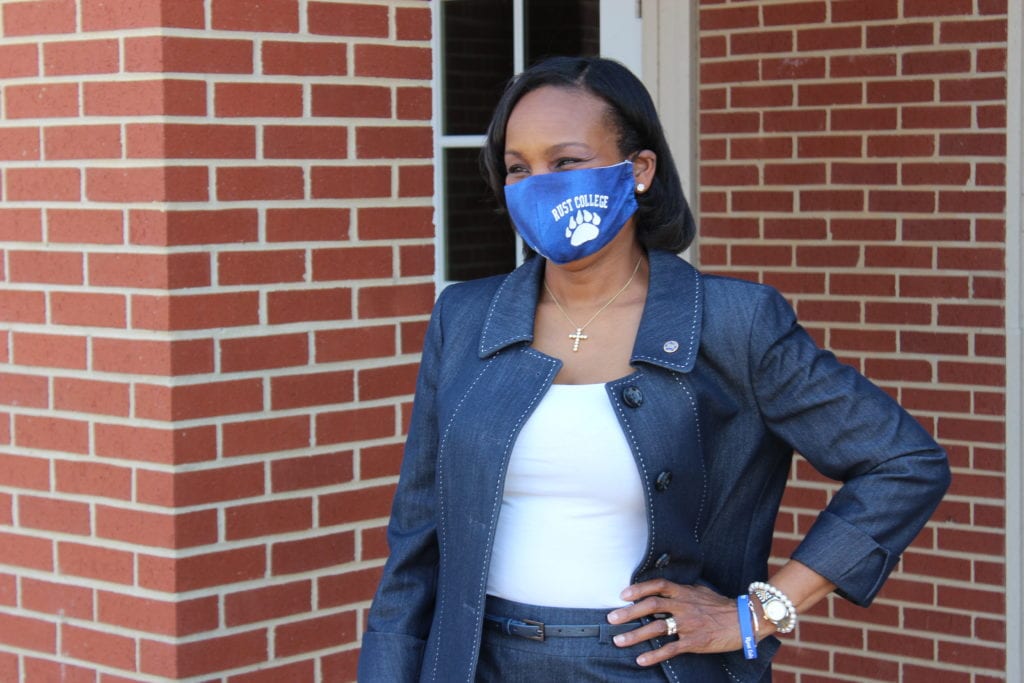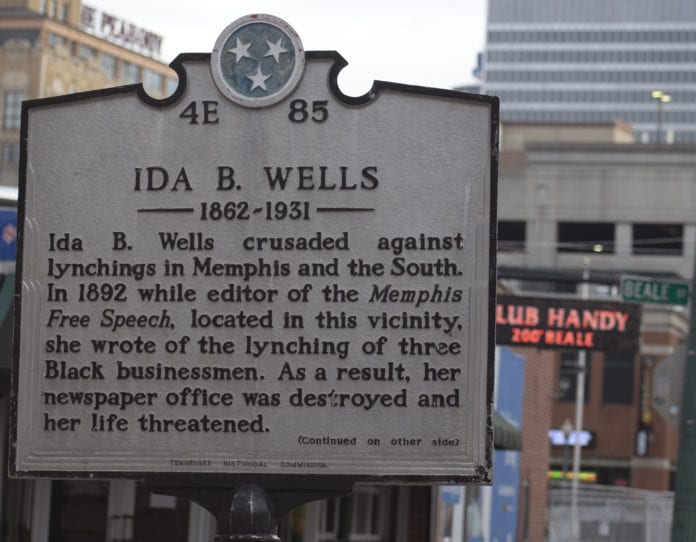I spent 10 months jailed at “201 Poplar,” now respectively named the Walter L. Bailey Jr. Criminal Justice Center. Recently, I “popped in” by choice, deciding that I wanted to see how my circumstantial brothers are being treated during COVID-19.
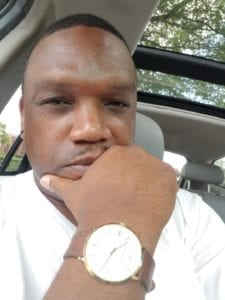
I made my move on May 28, three days before George Floyd was killed by former Minneapolis (MN) Police Department Officer Derek Chauvin.
Since then, Memphis demonstrators have wonderfully taken to the streets in unity with thousands throughout the U.S. and around the world. Rightly, they’re demanding justice in George Floyd’s case, for every person that has become a hashtag before him and for those killed and/or abused in painfully familiar encounters with law enforcement.
Definitely miles to go before we rest, but we’ve started and are continuing on the right path.
The Shelby County Sheriff’s Office oversees the jail. Just City Memphis, which has spent the last three years working toward a criminal justice system that “prioritizes fairness, decency, and equal protection under the law,” and the American Civil Liberties Union (ACLU) have sued Sheriff Floyd Bonner Jr., the first African-American elected to serve in the position. With the pandemic raging, they say he has not done enough to project those behind bars.
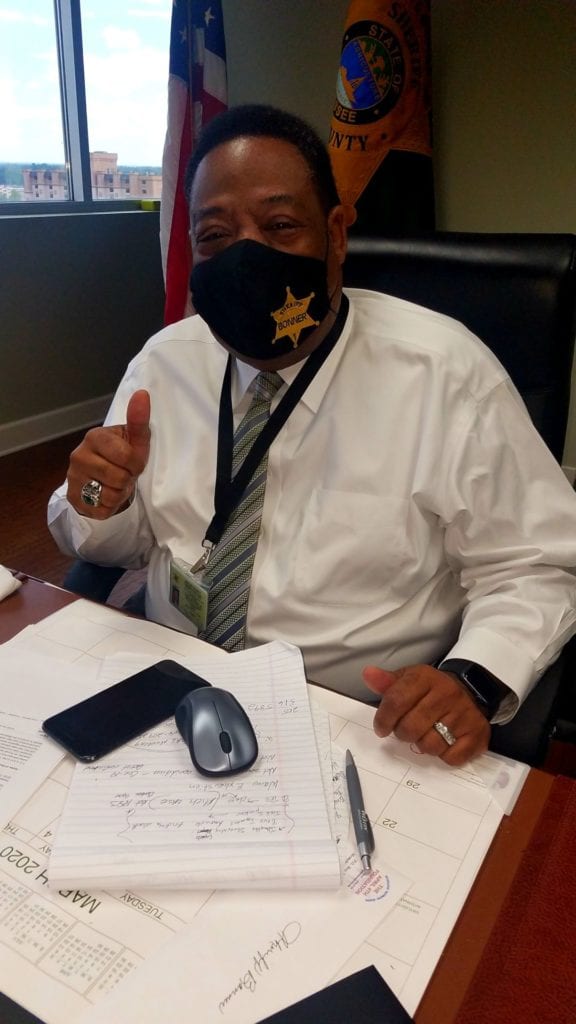
I wanted to get a feel for myself. I arranged to visit as a freelancer for The New Tri-State Defender, leveraging a relationship with the Sheriff’s Office, the Memphis Police Department and the Germantown Police Department that I created seven years ago with a periodic column titled “Good Blue & You.”
During that time, the conversations I have shared with TSD’s audiences have ranged widely from Bonner to patrol officers assigned to high schools to SWAT teams and officers serving in myriad capacities. The interviews have captured the intimate thoughts of officers about the community, why they chose law enforcement and drilled down to their favorite music or foods, marriage and their extra-curricular activities.
The Good Blue and You concept became its own entity, which I have maintained on my own, emailing copies to 36,000-plus people in our area and beyond. I have reason to think that the resulting relationships nurtured and cultivated seeds that have positively affected police-community interactions.
I made my visit to the jail fully committed to tell the truth as I encountered and discerned it. No change there in the way I operate. I talked with Chief Jailer Kirk D. Fields, Coleman Thompson, who manages the Sheriff’s Office’s substance abuse programs, and Assistant Chief (Juvenile Detentions Services) Deidra F. Bridgeforth.
Here are those conversations, purposely kept as raw as they happened.
The most recent testing and case information provided by the Shelby County Division of Corrections at TSDMemphis.com as of 6/6/20
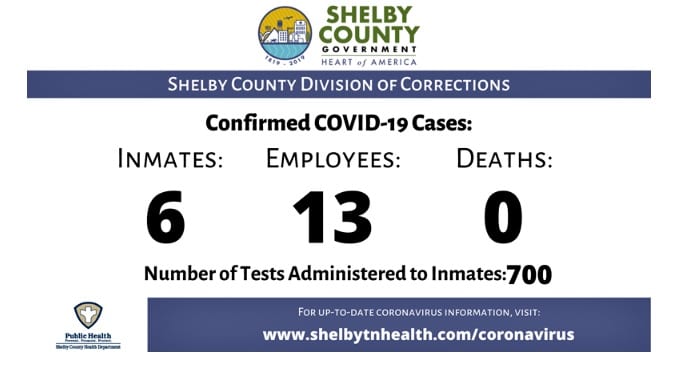
Chief Jailer Kirk D. Fields – We have roughly 1,875 inmates in the Shelby County Jail. Out at Jail East, we have 170 detainees and we have 47 at the Juvenile Detention Center. As of now, testing has been offered to approximately 450 inmates. A little under a half of those agreed to take the test. So testing is ongoing.
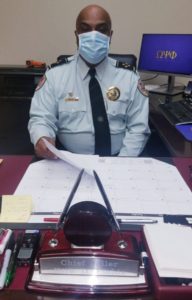
“We are currently working with the Tennessee Department of Health, the Tennessee Sheriff’s Association and Tennessee Corrections Institute on coming back in and doing some additional testing for those detainees that want to be tested, as well as our staff. That has not been finalized yet, but it is to take place in the future.
Kelvin Cowans – So, regardless of a test being available, let’s say even if two or three months ago, the inmates can refuse to be tested for COVID-19?
Chief Jailer Fields – That is correct. Legally, I cannot force an inmate to take a test, but we highly encourage it.
K.C. – As compared to a normal, non-pandemic May, are those numbers normal?
Chief Jailer Fields – Our numbers are quite lower in comparison to this time last year. That’s because the one thing that Sheriff Bonner did in early February 2019 was that he hired Michelle Best, a former General Sessions judge, creating a position as an expediter. That was because we saw a need to reduce our jail population PRE-COVID, well over a year ago.
We hired her to come in and to look at trouble cases, like people with misdemeanors and medical conditions. More so, people that needed help in the court system to transition them and get them out of jail so they can get the proper care or services that they needed.
Since we have had Michelle Best in place, our population has decreased significantly. We went from 2,700 when she initially came on and those numbers have started falling as she grew into her position. Now in conjunction with the (Shelby County) Attorney General’s Office and our other community partners, we are way down as you can see.
K.C. – What can you say to members of the public who may have family or friends housed in your jail system right now? We know that jail is hard and to put a virus on top of that, you can understand their concern is heightened for their loved ones.
Chief Jailer Fields – I completely understand. They are human and they are a part of our community. What I want the public to know is that their safety and medical care is comparable to the same level that they would receive if they were at home. They are getting the best care available.
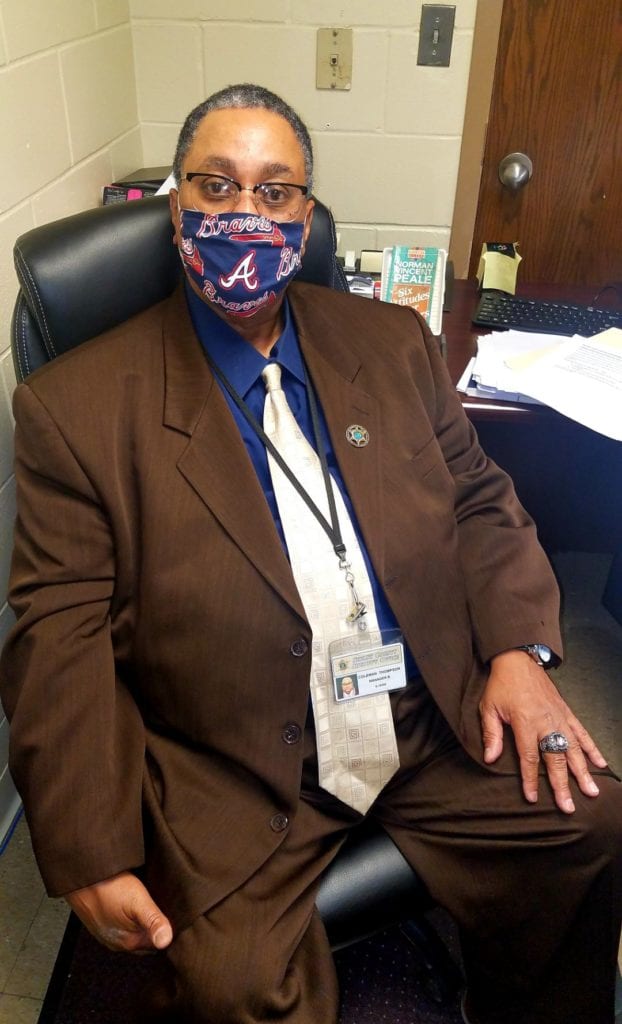
Coleman Thompson (Manager, substance abuse programs) – I’m relatively new here as I came in since December of 2019. My experience has been great here. The jail has a rather large amount of operational processes that take place. If a person hasn’t worked here before or done as you are doing in coming in and researching, then they wouldn’t truly understand how we function.
I’m into the program aspects of the inmates, including all males, females and juveniles. And I’m here to develop even more programs to strengthen inmates for when they leave here. No matter how long they are here, whether its 30 days, 90 days, six months or a year, we are educating them for when they get back out in the public, that they are more prepared for situations than when they came.
K.C. – The Shelby County Sheriff’s Office has for decades now shown itself to be a community-driven, law-enforcement agency. What have you seen since COVID-19 that makes you say you’re glad you came aboard here?
Manager Thompson – This operation is built on helping people change their life style. None of that has changed during this COVID-19. In fact, I’ve witnessed staff go out of their way to ensure more comfort to the inmates.
K.C. – Sheriff Bonner won the race overwhelmingly, at least 3 to 1. This told me that the community as a whole saw something in him and trusted that he could lead this agency to great levels; or, (in the view of some) keep the gold standard gold. Even in a pandemic, what are your thoughts on what this community believed forward in him?
Manager Thompson – In me knowing the Sheriff some, he has a great passion in wanting to see inmates get their lives together and not come back through here. He is a person who leads by example and it is clear that he is focused on making good people better. I have noticed that he doesn’t expect anything from his staff that he’s not also willing to do or have done to secure the public.
K.C. – As I entered the building today, I had to fill out some paperwork and my temperature was taken. I passed with a 97.8. That entire process was new for me and others. What else has been different about you guys’ routine in taking care of the inmates during COVID-19.

Assistant Chief Deidra F. Bridgeforth (Juvenile Detention Services) – New admissions are accepted primarily in the same fashion in which you entered today. In contrast, if they answered ‘yes’ to anything on the questionnaire – which is centered around the fact that they have had contact with a person that has the virus or frequented large gatherings or have a really high temperature, then our precautions are set into place.
We quarantine them before they are even admitted. For our juveniles, once they have actually been admitted inside then they are given a mask. All of our staff are given daily temperature checks and must wear mask as well and have to respond to COVID temperature checks every day.
K.C. – How many juveniles do you have housed currently?
Assistant Chief Bridgeforth – We have 47 at Juvenile Court and 170 at Jail East and 40 of them are transferred boys.
K.C. – Is that number a normal amount for Juvenile Court or has it been shaped by COVID-19 as others?
Assistant Chief Bridgeforth – Yes, the numbers are way down. Our average population dating back to in January of this year is usually 70. Then in April, it went down to 68, then 59 and now 47. What we have done is work with the courts to set up video visitation for attorneys, Zoom for court hearings, which actually moves court much faster. We still get about 10 Juveniles a week but it was double that, more so 20 a week PRE-COVID.
K.C. – Contrary to belief, you guys do not possess the power to say there is a pandemic and we need law enforcement not to arrest people. If I am correct, your job starts at the unlocking of the handcuffs?
Assistant Chief Bridgeforth – Absolutely! We are not the gate keeper. We are custody and care. Our population is indeed a lot lower than it would normally be if it were not a pandemic.
K.C. – How long have you been in law enforcement?
Assistant Chief Bridgeforth – I’ve been in law enforcement for 30 years.
K.C. – How many pandemics have you been a part of?
Assistant Bridgeforth – None.
K.C. – Are you sure?
Assistant Chief Bridgeforth – Ha! Yes I’m sure. But I will say this, it’s almost like we are built for this. Even though it is very unique, we are prepared. At Juvenile Court, we haven’t had a positive case at all. That is a blessing. We also haven’t had one at Jail East either.
The communication and teamwork of our staff has been excellent. There have been no pushbacks about the mask or the test. We have all decided to fight this thing head on and do our jobs and do them well. We want to keep the detainees safe as well as keep ourselves safe. This thing can take your life and so we are being very careful.
Also, we work with the Health Department, the University of Memphis, Sarah’s Hope, Shelby County Schools; and we are working on something with the Urban League as well. Our community partners are always donating to us, even in this trying time. They understand the difference in male and female inmates or detainees needs and they zero in on what we need specifically.
(Kelvin Cowans, the creator and owner of Good Blue and You, can be reached at kelvincowans@hotmail.com.)



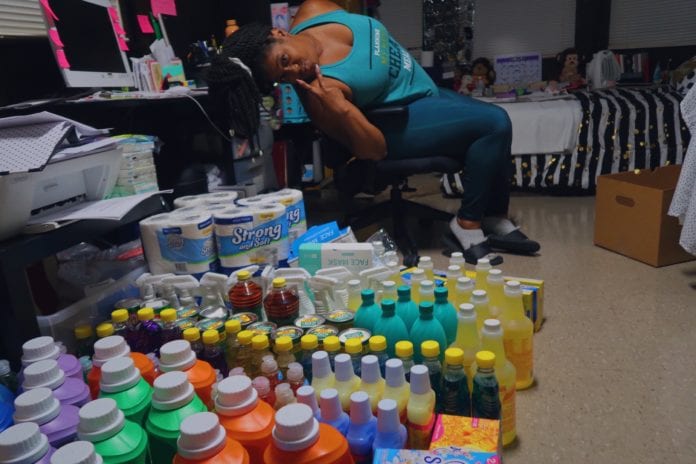
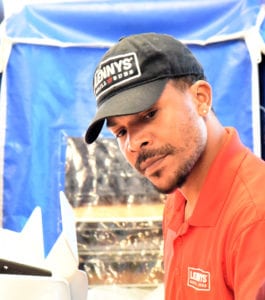
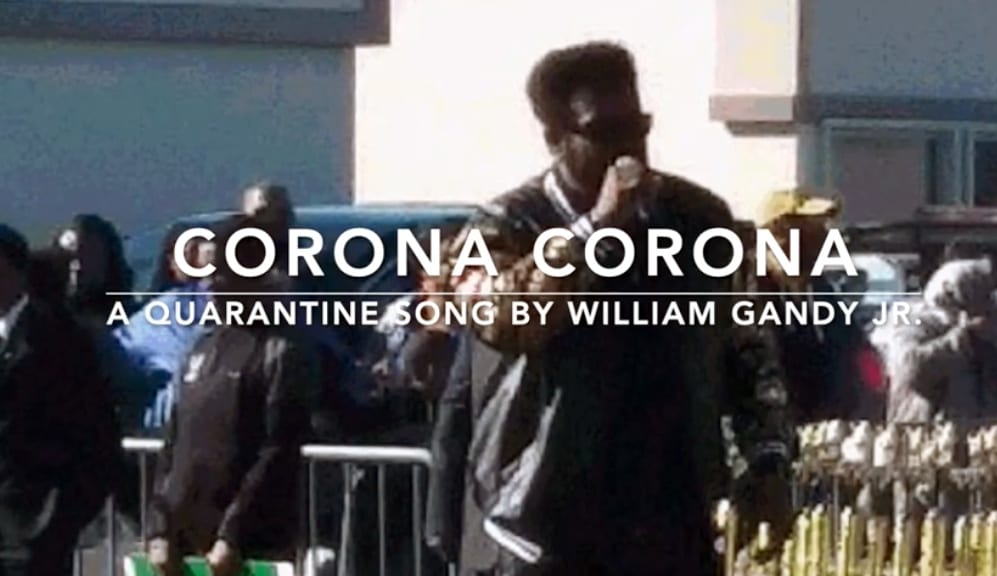

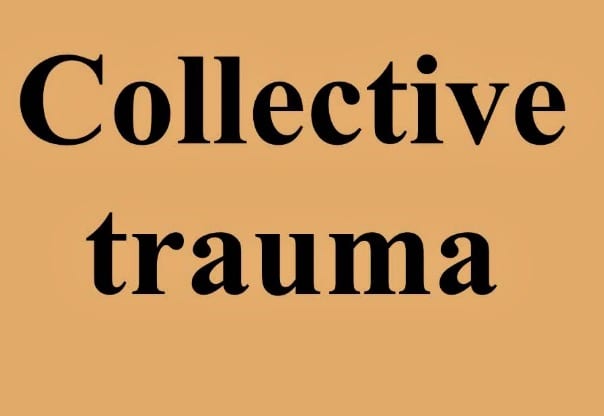

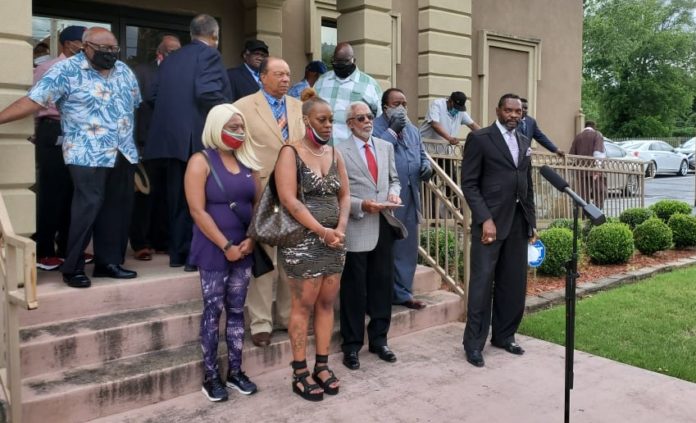
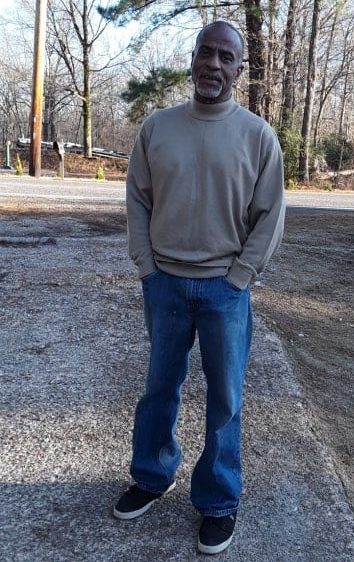
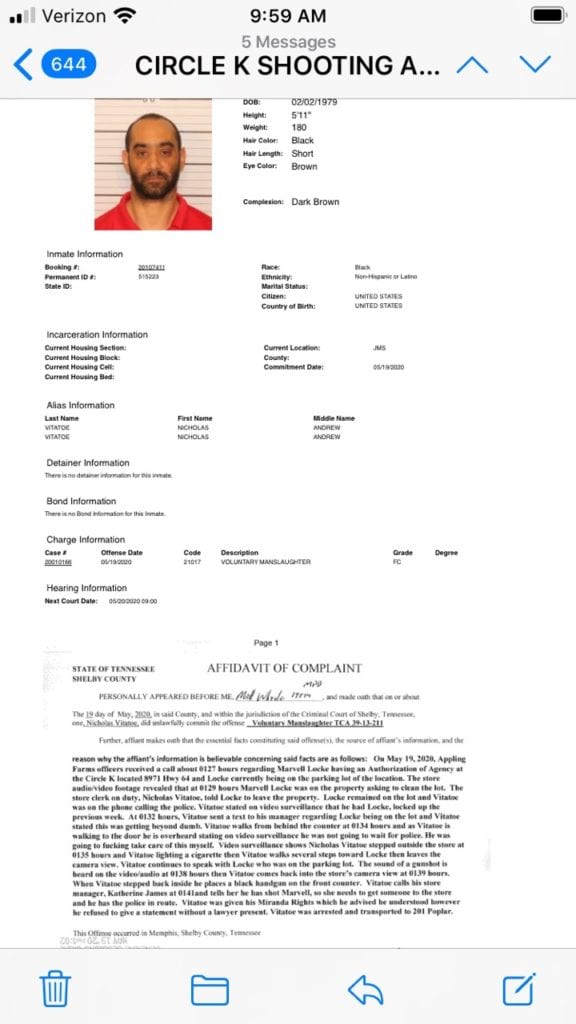 According to the police report, Vitatoe had Locke arrested for coming onto the property the week prior to the shooting. The clerk asked Locke to leave the property and called the police.
According to the police report, Vitatoe had Locke arrested for coming onto the property the week prior to the shooting. The clerk asked Locke to leave the property and called the police.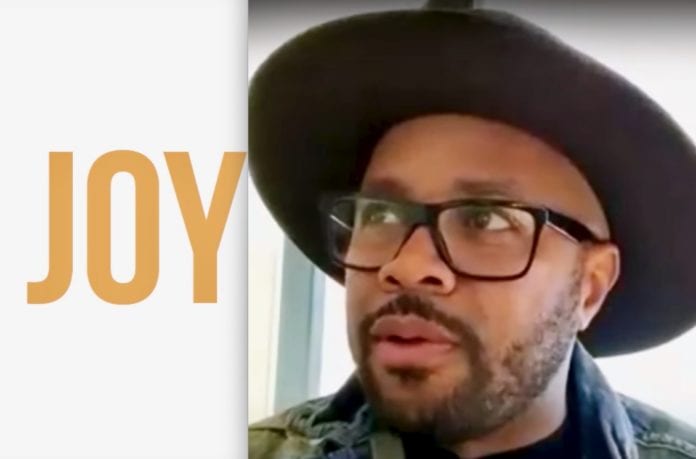
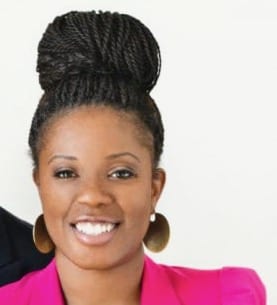

 Davidson County Chancellor Ellen Hobbs Lyle ruled that the state’s limits on absentee voting during the pandemic constitute “an unreasonable burden on the fundamental right to vote guaranteed by the Tennessee Constitution.” The judge wrote that any eligible voter can get an absentee ballot to avoid contracting or passing on COVID-19 in the “upcoming elections during the pendency of pandemic circumstances.”
Davidson County Chancellor Ellen Hobbs Lyle ruled that the state’s limits on absentee voting during the pandemic constitute “an unreasonable burden on the fundamental right to vote guaranteed by the Tennessee Constitution.” The judge wrote that any eligible voter can get an absentee ballot to avoid contracting or passing on COVID-19 in the “upcoming elections during the pendency of pandemic circumstances.”